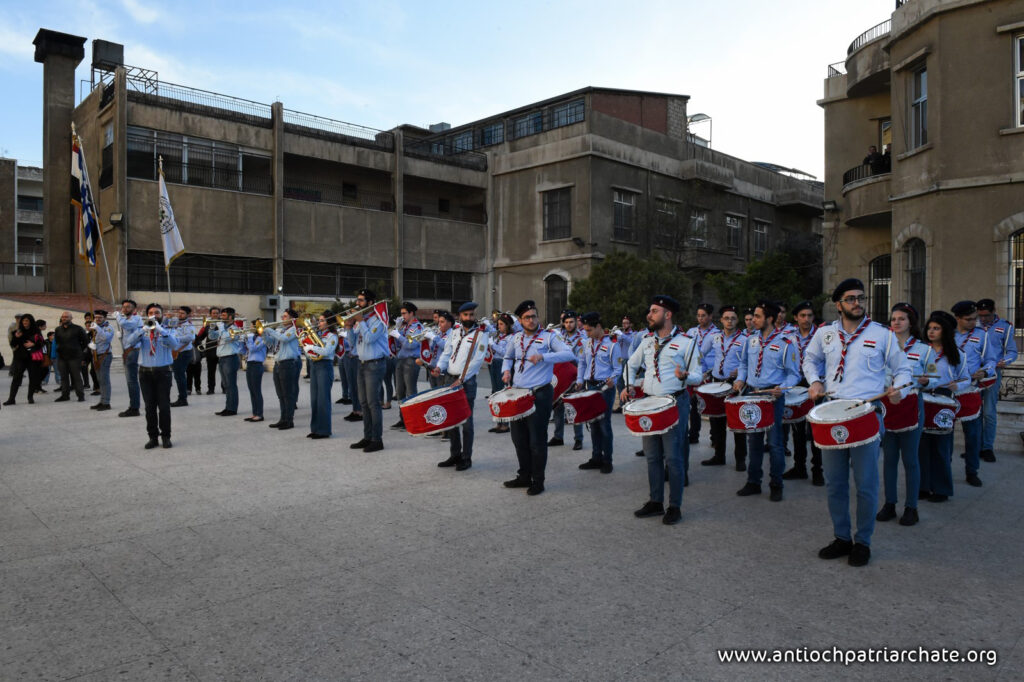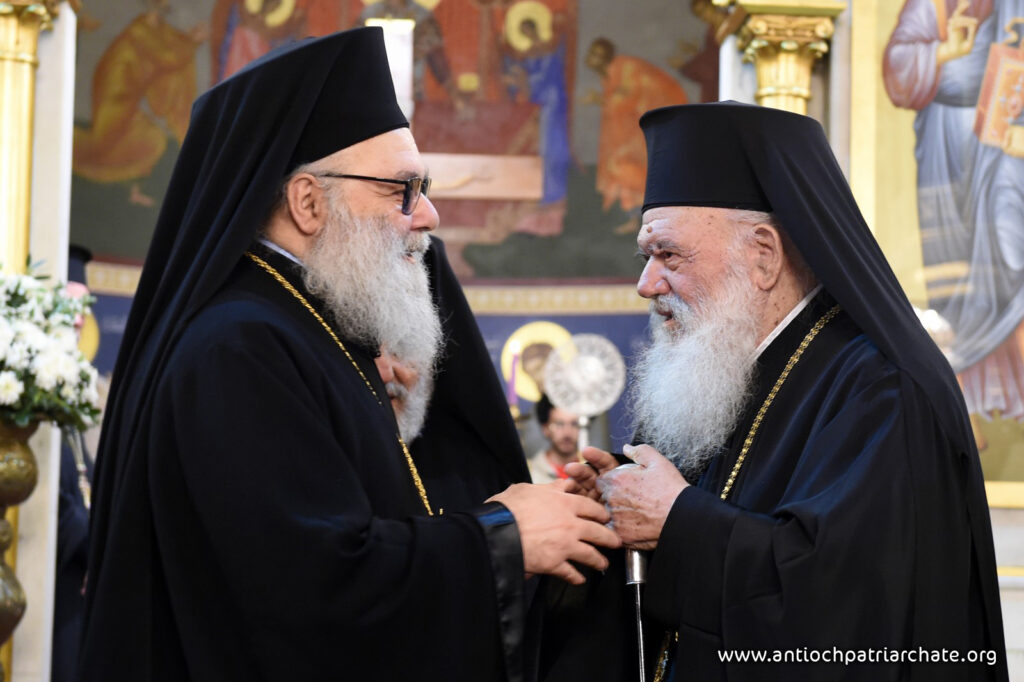Archbishop Ieronymos II of Athens and All Greece received an honourable welcome in the Syrian capital after being greeted at Beirut International Airport in Lebanon by Patriarch John X of Antioch on March 21.
The Archbishop travelled from Beirut to Damascus and was warmly welcomed by the Scouts of the Holy Cross Church once he arrived on Tuesday.
At the end of the prayer in the church, the Archbishop was welcomed by many Syrians who were happy to express their love for Greece.
For his part, the Archbishops expressed his feeling of a new birth by being in a land that has birthed many Holy men.
He said that the great ordeal caused by the earthquake - the great loss of life and property - made the Greek people express their solidarity and inspired them to send aid.
The Scout of the Holy Cross Church in #Damascus greets His Eminence Archbishop Ieronymos II of #Athens after he leads the church's prayer.We thank the Hellenic Republic's Greek Church for remembering the Forgotten Greeks of the Levant. pic.twitter.com/Ko1rvuChIV
— Greco-Levantines World Wide (@GrecoLevantines) March 21, 2023



The Levant region, comprising of Syria, Lebanon, Palestine, Jordan, Israel and Turkey’s Hatay province, is home to millions of Levantine Greeks, most of whom have no recognition from the Greek State as a community.

Although the Levantine Greek community is rooted from Bronze Age, Hellenistic Period and East Roman Era Greek settlements, today they are overwhelmingly Arabic-speaking following forced Arabisation in the 19th and 20th centuries.
Journalist and researcher Alexandros Massavetas explained that at the end of the 19th century, in the context of rivalry between the Constantinople and Moscow Patriarchates, “the Russians managed to penetrate one of the four ancient Patriarchates, that of Antioch, and through their very extensive sabotage operation, to pass its leadership from Greek priests to Arabs who were manipulated by Moscow.”
In speaking to a Greek Parliamentary Committee in November 2021, Rafael Issa, President of the Levantine Greek Association, said:
“Not many in the world are aware of the existence of our community, let alone that we share a common Hellenic and Byzantine ancestry with the people of Greece – once mentioned by one of the most eminent Greek historians of the late 19th century, Pavlos Karolidis.
“From the establishment of Constantinople to the formation of the modern nation-states in Asia Minor and the Levant – We have always been seen as the same people.
“This is a fact that is confirmed in the 1878 ethnographic study of French historian Alexander Synvet, that is until foreign power introduced toxic ideologies to serve their own interests, such as Pan-Arabism – an ideology that became very popular throughout the Levant, as well as competing ideologies like Phoenicianism, Arameanism, and Turanism.
“Although these ideologies took root throughout Syrian, Lebanese, Jordanian, and Palestinian societies, they only affected our language and names.
“The rest has remained Romaiic. As a matter of fact – we are still given Greek names at baptism.”
READ MORE: Eastern Orthodox Church could set up in Lithuania to rival the Russian church.

